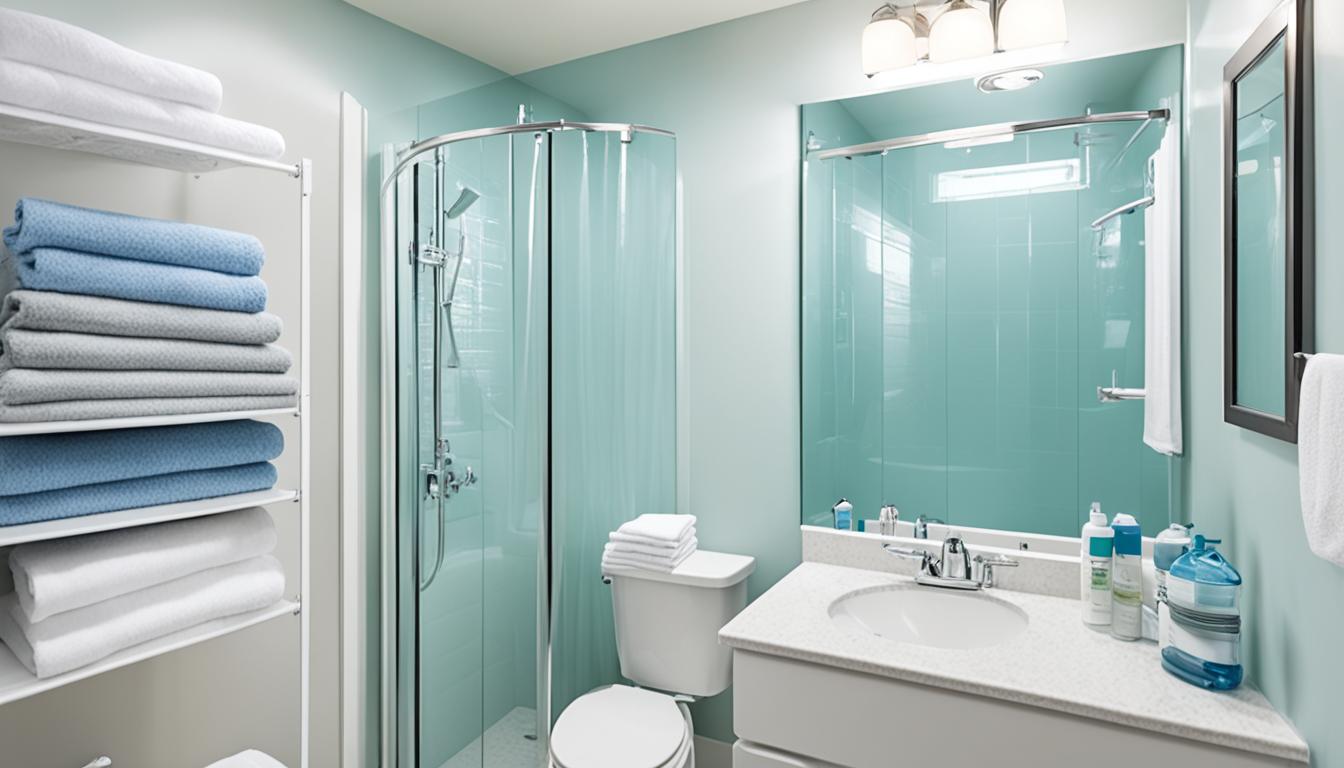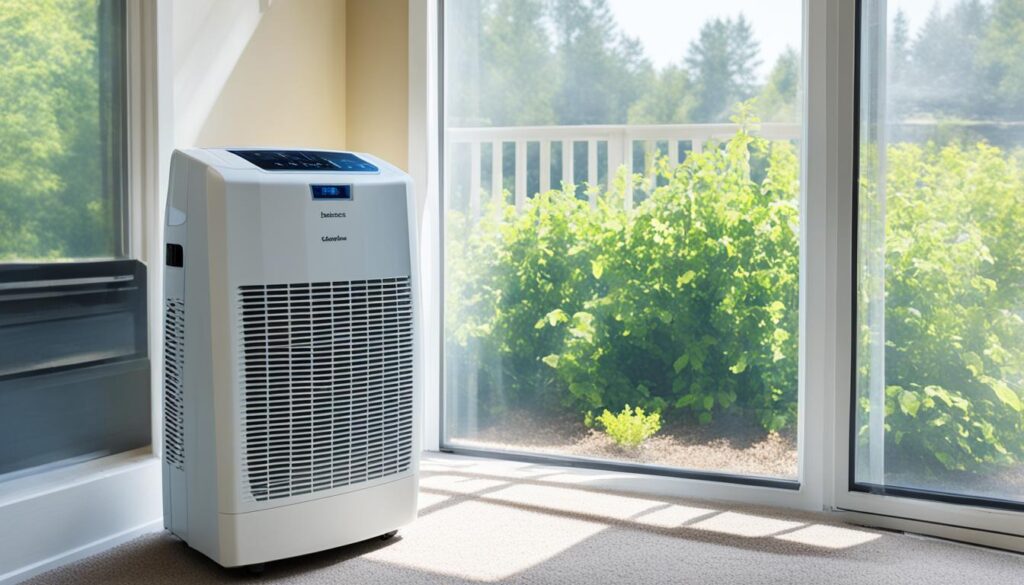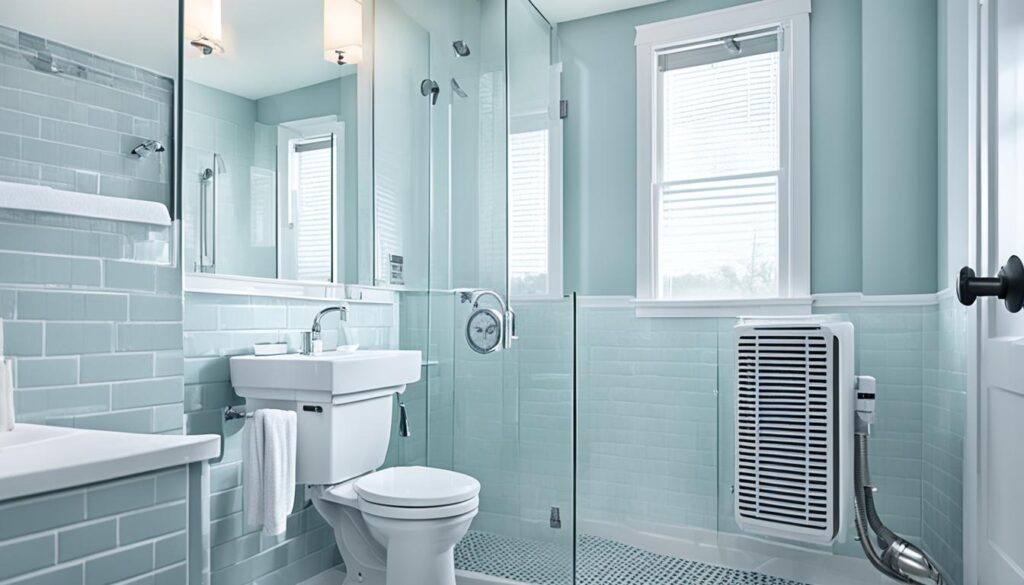
Mold Prevention Measures for Florida Rental Homes
In this article, we will discuss the essential mold prevention measures that landlords should implement in their Florida rental properties. With the high humidity levels in Florida, it is crucial to take proactive steps to prevent mold growth and protect the health of tenants.
Key Takeaways:
- Florida’s humid climate creates an ideal environment for mold growth in rental properties.
- Implementing appropriate mold prevention strategies can safeguard the property and promote tenant health.
- Moisture control, proper ventilation, regular inspections, maintenance, and tenant education are essential in preventing mold.
- By understanding the impact of humidity on mold growth, landlords can effectively protect their investment.
- For professional assistance with mold prevention and remediation in Florida, contact Fix Mold Miami at 305-465-6653.
Understanding the Impact of Humidity on Mold Growth
Before diving into specific mold prevention measures, it is crucial to understand the relationship between humidity and mold growth. In humid climates like Florida, the risk of mold in rental properties is significantly elevated. To effectively prevent mold growth, landlords must implement appropriate measures to control humidity levels and minimize moisture accumulation.
Mold thrives in environments with high humidity, typically above 60%. Florida’s humid climate provides an ideal breeding ground for mold spores to flourish and colonize. When excessive moisture is present, whether from leaks, poor ventilation, or condensation, it creates the perfect conditions for mold to grow.
By adopting mold prevention best practices, landlords can proactively combat mold growth in their rental properties. Preventing mold growth not only preserves the integrity of the property but also safeguards the health and well-being of tenants.

How Humidity Contributes to Mold Growth
High humidity levels contribute to mold growth in multiple ways:
- Increased moisture: Humid air holds more moisture, increasing the likelihood of damp surfaces and promoting mold growth.
- Condensation: When warm, moisture-laden air comes into contact with cool surfaces, condensation forms. This condensation provides a moist environment suitable for mold spores to grow.
- Poor ventilation: Inadequate ventilation hinders air circulation, trapping moisture indoors and creating stagnant conditions that promote mold growth.
Preventing Mold Growth in Humid Climates
To prevent mold growth in rental properties located in humid climates like Florida, landlords should implement the following best practices:
- Monitor humidity levels: Regularly monitor and maintain humidity levels below 60% using dehumidifiers or air conditioning systems.
- Ensure proper ventilation: Install exhaust fans in high-humidity areas like bathrooms, kitchens, and laundry rooms. Promote cross-ventilation by opening windows whenever possible.
- Address leaks promptly: Fix any leaks or water intrusion issues immediately to prevent moisture buildup and potential mold growth.
- Regular inspections: Conduct routine inspections to identify and address any signs of water damage or moisture issues.
- Promote tenant education: Educate tenants about mold prevention best practices, including the importance of proper ventilation, moisture control, and prompt reporting of any leaks or concerns.
“Preventing mold growth in humid climates requires proactive measures to manage moisture levels and ensure proper ventilation. By implementing these best practices, landlords can create a safe and healthy environment for their tenants.”
Essential Mold Prevention Strategies
To ensure a mold-free environment in your rental properties, it is crucial to implement effective mold prevention strategies. By following these tips and techniques, landlords can minimize the risk of mold growth and create a healthy living space for tenants.
Moisture Control
Moisture is the primary factor contributing to mold growth. Implementing moisture control measures is essential in preventing mold in rental properties. Here are some key strategies:
- Fix any leaks or plumbing issues promptly. Pay close attention to areas prone to moisture buildup, such as kitchens, bathrooms, and basements.
- Ensure proper drainage around the property to prevent water accumulation near the foundation.
- Use dehumidifiers in high-moisture areas to maintain optimal humidity levels.
Proper Ventilation
Proper ventilation is crucial for preventing mold growth as it helps to reduce excess moisture and improve air circulation. Consider the following techniques:
- Install and maintain exhaust fans in bathrooms, kitchens, and laundry rooms to remove moisture-laden air.
- Encourage tenants to use exhaust fans during activities that generate moisture, such as showering or cooking.
- Open windows regularly to promote airflow and allow moisture to dissipate.
Regular Inspections and Maintenance
Regular inspections and maintenance play a vital role in identifying and addressing mold-prone areas and potential issues that may contribute to mold growth. Here’s what landlords should focus on:
- Inspect the property regularly for any signs of water damage, leaks, or moisture intrusion.
- Address any issues promptly, such as fixing leaks and repairing damaged roofs or windows.
- Clean and maintain gutters and downspouts to ensure proper water drainage.
- Regularly clean and inspect HVAC systems, including air filters, to prevent mold spores from circulating.
Education for Tenants
Education is key to mold prevention. By providing tenants with information and guidance on mold prevention, you can empower them to contribute to a mold-free environment. Consider these educational strategies:
- Include mold prevention tips in the rental agreement or lease as a reference for tenants.
- Provide tenants with guidelines on maintaining proper ventilation and reporting any signs of moisture or mold growth.
- Offer resources or educational materials on mold prevention, such as brochures or online resources.
By implementing these mold prevention strategies, landlords can safeguard their rental properties and prioritize the health and well-being of their tenants.

| Mold Prevention Tips | Mold Prevention Strategies | Mold Prevention Techniques | Mold Prevention for Landlords | Mold Prevention for Tenant Health |
|---|---|---|---|---|
| Moisture control | Regular inspections and maintenance | Proper ventilation | Education for tenants | Moisture control |
| Fix leaks promptly | Inspect for water damage | Install exhaust fans | Include mold prevention tips in rental agreements | Address potential health risks |
| Ensure proper drainage | Repair damaged roofs/windows | Encourage use of exhaust fans | Provide educational resources | Empower tenants with knowledge |
| Use dehumidifiers | Clean and maintain gutters/downspouts | Open windows for airflow | ||
| Regularly clean HVAC systems |
Conclusion
In conclusion, mold prevention is crucial for Florida rental properties due to the high humidity levels. With the humid climate in Florida, mold growth can pose significant risks to both the property and the health of tenants. It is essential for landlords to understand the impact of humidity on mold growth and take proactive measures to prevent its occurrence.
By implementing essential prevention strategies such as moisture control, proper ventilation, regular inspections, maintenance, and tenant education, landlords can effectively safeguard their investment and create a healthy living environment for their tenants. These measures will not only prevent mold growth but also contribute to the overall well-being of the occupants.
If you require professional assistance with mold assessments, prevention, or remediation in Florida, consider reaching out to Fix Mold Miami. With their expertise and experience in handling mold-related issues, they can provide the necessary guidance and services to ensure a mold-free and safe rental property. Contact Fix Mold Miami at 305-465-6653 for reliable assistance.




